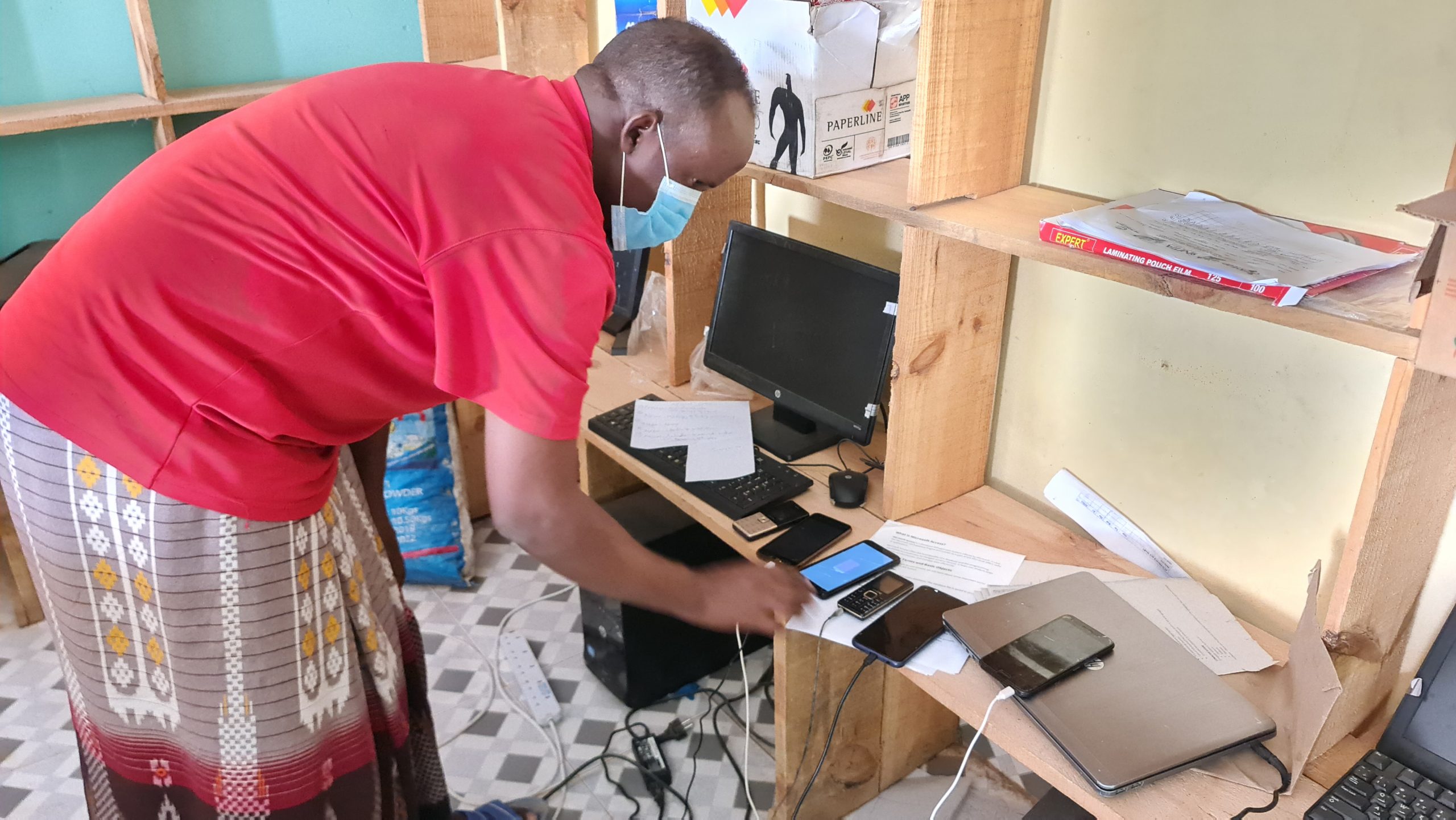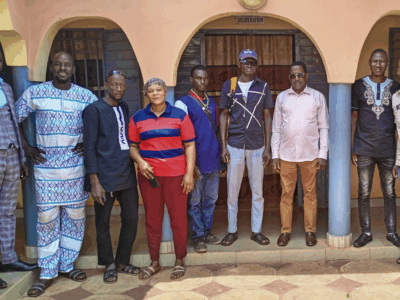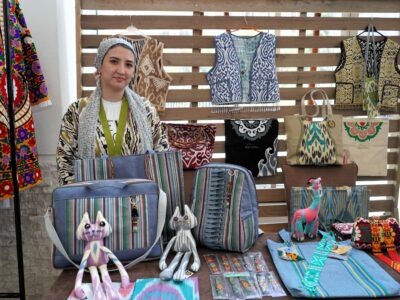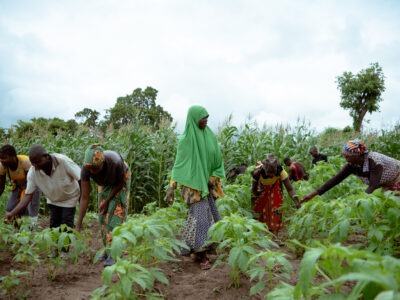
In 2015, 26-year old Mohammed Ore Ahmed identified a business opportunity in his hometown of Griftu in Wajir County in Northern Kenya. Griftu has witnessed an expansion of business activity and increased demand for access to information and services such as printing and photocopying. Understanding this demand, Mohammed opened a cybercafé with a capacity of eight where people can browse the internet, photocopy, print, laminate, and scan documents. His business was unique – it helped to connect the community, especially young people, to the outside world.
Mohammed comes from a pastoralist community in Griftu with a population of 7,935. “Most of my clients at the cybercafé are livestock market users with different needs such as lamination of their identity cards, photocopying, charging of their phones and also printing services. Young people are also frequent customers when seeking jobs through the internet or printing or photocopying documents required for an interview.” As in many remote parts of the country, Griftu village has a real need for internet access, printing, photocopying, lamination, and mobile phone charging services. However, Mohammed’s business was affected by frequent power outages affecting the community adversely. “Whenever there was a power outage, I was forced to shut my business as it is dependent fully on the electricity. This affected my sales for the month. At the end of the month, I made approximately $100. This was a strain for me as I have three permanent and two casual workers to help me to run the day-to-day business activities.”
In 2020, the Feed the Future Kenya Livestock Market Systems Activity (LMS) as part of its competitive grants program granted Mohammed $3500 to fit a solar panel system for his business premises. With the grant funds, Mohammed purchased a 250-watt solar panel, a sealed solar battery of 200 amp-hours, a 1,000-watt power inverter, and a10 mm twin flat electrical cable. With an average high of 32 degrees Celsius in Wajir County, solar panels generate energy of up to 5,000-12,000 watts per day giving Mohammed enough power to run his business without power interruptions.
“The solar system has brought a lot of changes into my business. I can now do my business activities without interruptions from power outages. My sales volume has increased tremendously as I can continue with my work throughout the day without electricity interruptions. I used to make approximately $100 per month but I can now make sales of over $230 per month.”
– Mohammed Ore ahmed
Mohammed uses the profit to pay family bills, pay for his daughter’s educational fees, and to expand the business. He plans to open additional branches and identify a direct supplier from Nairobi where he can get materials like printing papers, lamination pouches, staplers, and pins. He also hopes to start small businesses within the cybercafe like M-pesa; a mobile money transfer service, as well as shops, drinks, and shoe polishing allowing him additional revenue streams without occupying much space or additional human resources.
The Feed the Future Livestock Market System Activity aims to build the resilience of communities to shocks and stressors while strengthening the potential of pastoralists, community groups, cooperatives, and entrepreneurs, enabling households to generate more income within the sector and diversify their incomes.
Learn more about the Feed the Future Kenya Livestock Market Systems Activity here.
Learn more about our work in Kenya here.








